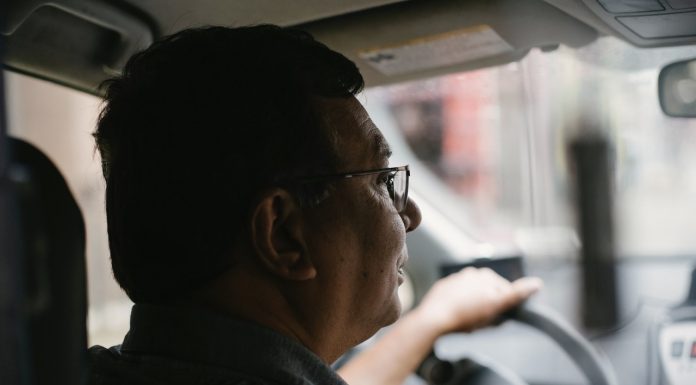Often, we hear some great stories from our audience about their experience with hospitals and the care their loved ones received. Hats off and much gratitude for the skills, expertise for all the amazing doctors and nurses that help people every day. Unfortunately, we also hear of stories whereby caregivers are left to care for their loved one after surgery or illness, with little, insufficient, to no instruction or help.
This is a “call” on behalf of all stakeholders to revisit the process around discharging patients. This post hospital – i.e. at home care, is equally important for successful outcomes in the patient’s return to optimal health. As a result, health providers must ensure the caregiver is “equipped” and “capable” to carry out the required care tasks. This “hand-off or, transition” to the subsequent “care providers” is a critical component for the skills, care expertise and expenses invested in “a patient’s medical treatment”, to be considered “qualitative” care.
The health system cannot look at all individuals as needing the “same” or a “one-size fits all approach” when a patient has other chronic illnesses or issues. There MUST be a specific post-operative care plan “customized” for the patient and their caregiver.
Here’s a recent story that just makes you shake your head and we hope it helps gain some attention on the need to revisit post-op care and perhaps our system in general. This is one of many and our heart goes out to the family and caregiver.
“After 3 re-schedules of open-heart surgery, the patient had his aortic valve replaced and a single by-pass on March 1st. Very happy to report the procedure went well. The surgeon’s SKILLS and after care were excellent. Patient was discharged to home on March 6th.
As his caregiver related: “On the night of March 14th, at 10:30 p.m., we became alarmed discovering his leg incision (where they took the vein for the by-pass) was bleeding. It was not bleeding a lot, yet enough, that when I blotted the incision, it continued to bleed. I placed a 4 in. gauze on it. I really needed advice, direction, re-assurance & confidence.
The discharge documents received upon leaving the hospital had all kinds of great info on caring for the chest incision, which was excellent. However, no mention is made “anywhere” about the possibility of a bleed from where the vein for the bypass was removed. It was too late to call anyone, except “Telehealth”. When I called, was advised it would be a 2 hour wait before an RN could get back to us. That would have been at 12:30 a.m.
I called back to the hospital…to the cardiac care floor, where my husband had been during recovery. I had been provided this number to call to check on patients while they were there & spoke to an RN. She first advised they don’t consult on issues regarding discharged patients…. after a request to please help me, the RN asked many questions regarding the bleeding. She then said she “thought” the issue could wait until the a.m. when I could take him to an ER in Durham region. I was only somewhat less anxious, as the phrase the RN had used, that she thought the issue could wait until the a.m. was not really re-assuring.
As we were prepping for bed, Telehealth called us back. My husband answered the questions this RN had …. (a second opinion never hurts, especially late at night when worry sets in). This RN said to take my husband to ER in Durham, now. Erring on the side of caution, (& being concerned) I got him ready to go. You have to know he was very weak, needed help with all his dressing including socks and shoes and it was still winter and cold outside. Of course, I drove with my husband in the back seat. If we had had an accident and he was in the front seat, the air bag would have broken his sternum which had already been deliberately broken for the open-heart surgery.
Drove in the rain, dark and fog for 30 minutes to a Durham ER to a WAIT room full of coughing, wheezing patients. I placed my husband in a wheelchair, as he was too weak to walk, near the wall, as far away from the other people as I could. It took a good half hour before we reached the Triage RN…then we had to wait to register at another location. The RN had no comments when I told her of his very recent surgery, his weakened immune system and my concern he might pick up an infection. Then we waited some more in ER room and finally were called in to the inner sanctum where we waited again in a room for at least an hour, before seeing a doctor. He took blood and we had to wait for results. By 4 a.m. when the results came in, we were told that the test showed there “could” be a DVT but an ultra sound was needed before he could know for sure. We were told to come back to ER to get the Ultra Sound when the dept opened at 8:30 a.m. He said if there was a DVT it would mean my husband would have to take something other than the blood thinners he was on. They sent us home! I again drove in the rain, fog and dark more anxious than when we had arrived at ER.
Arrived home exhausted, around 4:45 a.m. for a few hours’ sleep. Back at ER few hours later, had to wait for Triage again. Though my husband still had his hospital bracelet on his wrist from registering a few hours earlier, we had to re-register again…more waiting, a new wrist band. When we got the ultra sound results later, while sitting in a waiting room, (not in private) the on-duty health provider (don’t know if he was an MD or technician, as he never introduced himself) he said “there is a DVT” & handed us the test results and said, “see your GP!” Six hours had elapsed.”
—————————————
The province spends all kinds of tax dollars on greatly skilled and much appreciated health experts – really great “talented people” and “hospital care” at this renowned hospital. However, the health system does a very poor and costly job which gets a failing grade, for their discharge education process, for patients/caregivers when the home recovery is as important as successful initial surgery in terms of making a “quality recovery”. Even the terrific surgeon I spoke with after my husband’s surgery said the surgical procedure was just a first step to full recovery. The after-hospital recovery care, physical exercises, rest, eating well, sleeping, +++ was the key to ensuring a return to quality health. The current health system lets the surgeons and all health care providers down by the lack of a comprehensive understanding of how taxpayers’ money can be much better utilized! If caregivers are to be truly appreciated and acknowledged, educate us!
DISCHARGE EXPERIENCE
A 10-15 minutes’ instructions’ discussion by an RN with caregiver & patient & very good, but incomplete documents on the day of discharge simply don’t CUT it!!
SUMMARY
Fortunately, the patient is doing much better, however when you read this story there are so many opportunities for this not to be the case.
We suggest a few things:
- The post-op instructions should have advised that because this patient had chronic conditions therefore there could be issues with healing.
- It should also be considered that this patient was on other medications and what the possible ramifications could be.
- Any instructions should be given prior to surgery when the patient and caregiver are not as overwhelmed with worry and exhausted from care and in the mindset “to prepare” not react.
- The great care received at hospitals need to carry over throughout the cycle of care that the patient needs, it shouldn’t stop once discharged.
- We need more than Telehealth for after-hours advice & patient/caregiver assistance
What do you think?
























